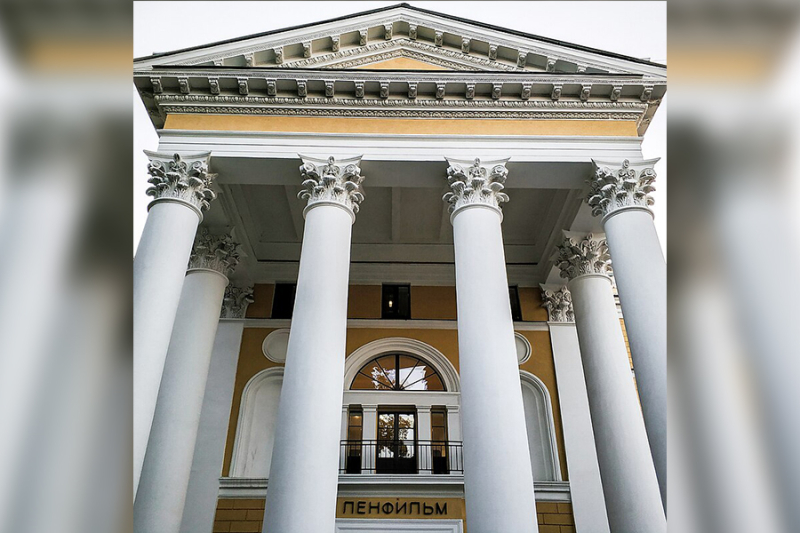The history of Lenfilm
The studio's beginnings date back to 1914, when it produced newsreels, documentaries, and feature films as part of the local military cinematic committee – and even earlier, in 1896, when one of its existing pavilions, Aquarium, hosted Russia's first movie screening. Nonetheless, the "official" history of the facility, formerly known as the Petrograd Film Committee of the Union of Northern Communes, began only after it was nationalized by the newly-formed Soviet state and released its debut film, Compaction, in 1918.
The studio began to take on its current appearance in the 1920s and 1930s. It settled in its current location in the Petrogradsky District and became thoroughly associated with the Lenfilm moniker, though its official name actually went through more changes throughout its history. The studio adopted its signature logo, featuring the Bronze Horseman, in 1966. Many of its feature films have been recognized with prestigious awards at international cinema festivals around the world.
Top 5 movies of all time
Out of the studio’s extensive collection, here are its top five as ranked by the users of the Russian film database Kinopoisk:
-
The Adventures of Sherlock Holmes and Dr. Watson (1979-1986) by Igor Maslennikov – the well-loved Soviet adaptation of Sir Arthur Conan Doyle's stories, which, faithful to the source and atmosphere, was so highly regarded in the character’s homeland that Vasily Livanov was awarded the title of Chevalier of the Order of the British Empire for his portrayal of Holmes;
-
Heart of a Dog (1988) by Vladimir Bortko – a two-part adaptation of Mikhail Bulgakov’s eponymous 1925 novella, which remained banned for 60+ years for its anti-communist sentiment. It tells the story of a dog-into-man-and-back surgical transformation performed by a fictional big-name Moscow professor;
-
At War as at War (1969) by Viktor Tregubovich – another movie adaptation (based on the eponymous story by Viktor Kurochkin), the film sheds light on the everyday life of tank crews during World War II;
-
White Sun of the Desert (1970) by Vladimir Motyl – a joint effort of Mosfilm and Lenfilm in the genre of eastern (as opposed to western) in which a demobilized Soviet soldier finds himself protecting the local harem from its leader on the east shore of the Caspian Sea;
-
Peculiarities of the National Hunt (1995) by Aleksandr Rogozhkin – a witty Russian comedy about a Finn learning Russian hunting traditions from the natives.
Find a complete and comprehensive filmography of the studio on IMDb.
Lenfilm today
Today, Lenfilm is the oldest film studio in St. Petersburg and Russia, with branches in its downtown and even outside the city. It operates not only as a production facility, but also as a theater, screening a varied array of movies, from its own releases to acclaimed indie movies (including in their original languages). Among the production’s recent hits are the historical detective Contribution (2015) by Sergei Snezhkin, the mystical film series Gogol (2017 and 2018) by Egor Baranov, and others. Apart from engaging in filmmaking and movie screenings, the studio invites visitors to an immersive exhibition to explore how the industry survived the hard times in its history.




